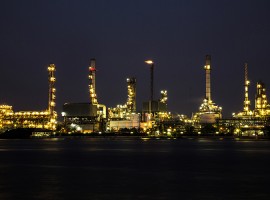Redeveloping mature fields can have an incredible economic value, only if they are managed efficiently. For this reason, oil and gas industry leaders need to shift their focus to improving efficiency rather than achieving growth, which is often driven just for the sake of boosting profits and gaining competitive edge. With those schemes dominating today’s oil and gas sector, oil majors are looking for ways to better manage their brownfield projects.
Recently, oil prices have been increasing after a harsh downturn that hit the market in 2014. Therefore, the economics of brownfields are totally changing in a way that will affect the entire agendas and strategies of oil companies around the world. In addition, oil producers are becoming increasingly anxious that governments will have to interfere and pump the prices even more. This spike will affect international oil companies (IOCs) from countries with stable economies that are heavily reliant on oil fields. Hence, IOCs are left with no options other than beginning to alter their plans to adjust to the reality of booming prices.
Consequently, to optimize the efficiency of brownfields, field experts, IOCs, national oil companies (NOCs), and government officials in Egypt have to revisit their strategies in order to cope with the common attributes and trends emerging globally.
Cutting Costs in Brownfields
Exploration and production (E&P) is the heart of brownfields in Egypt and in the oil and gas industry as a whole. Due to its high investment, high profit, and high risk, brownfields’ economic benefits become unstable, and thus, are subject to unpredictable factors.
According to an article published by Sheppard and Raval in the Financial Times in 2018, BP has once called off a project in the Gulf of Mexico that was scheduled to start producing oil in 2020 because its forecasted cost surged much more than expected, reaching more than $20 billion. However, after studying the situation carefully, BP returned with a more efficient plan, capping costs at $9 billion instead.
Hence, the oil and gas sector is trying its best to fulfill the persistent urge to cut costs while harnessing technology. However, the sector’s trial might pose some conflict, leaving many to wonder if the industry is making miscalculations.
It is almost impossible to measure the expected reserves for oil and gas and its economic benefits. Therefore, it is very important to assess three aspects that will likely guarantee the success of brownfield projects. These aspects are: the project’s scope, time, and cost, which simultaneously optimize brownfields’ efficiency.
Discovering oil reserves is hard and bears a very high drilling cost. It is estimated that E&P companies may spend as much as 50% of their capital budgets on drilling. For this reason, investing in enhancing production from existing fields, although challenging, can still be more cost-effective.
Ahmed Hassan, Chief Reservoir Engineer at PICO International Petroleum, previously told Egypt Oil & Gas that one great advantage and an excellent opportunity for the development of brownfields in Egypt is the existing infrastructure. The infrastructure of brownfields in the country has a great impact on its efficiency, saving both time and money. Thus, the economics of the development of oil fields is enhanced at large because of its convenient infrastructure.
Utilizing Convenient Investments
Most investors will choose to explore and develop oil and gas investments in the regions with the highest development value. Otherwise, the result could be a spike in prices and a shortage in supply which directly will affect the global economy as a whole. According to Sheppard and Ravel, how IOCs choose to invest in the oil and gas sector will determine the way the industry giants, such as Shell and BP, will look like in the future.
Currently, investors are driven by the need to allocate their costs efficiently after the oil prices have risen, leading them to drop mega projects altogether. Complex long-term investments are being shelved as emerging economies in Africa and Asia expand. From the Arctic exploration to the Canadian oil sands, which were once mega project’s strong suit, the industry is now shifting towards a more efficient type of investment. Consequently, it is now easier to inject capital in short-term projects instead as they pay off faster. When a project takes up to 10 or more years to become profitable, then it is better to abandon it, although not so long ago, it was normal for project completion in the industry to take about 10 years. Nowadays, IOCs tend to focus more on maximizing returns to shareholders with a return on investments.
Some oil companies are often criticized for shelving complex long-term investments, but this is actually a smart strategy to keep up with the demand of a 100 million barrels per day (mb/d) that is the result of the expansion of emerging economies in Asia and Africa.
However, short-cycle projects are not the only ingredient when it comes to cost-efficiency optimization of brownfield projects. Bottlenecks and the quality of reserves also help determining how the economic feasibility of brownfield projects will be handled.
Egypt’s oil and gas reserves are abundant, and here is where investments change everything. The investment climate in Egypt is attracting foreign capital more than ever. In most circumstances, and in Egypt’s case specifically, turning a blind eye to investments would not really be a wise thing to do.
Although fluctuating prices remain a threat for IOCs, investing in energy companies is the way out from any long term risks. Investors should start thinking of ways that are not too wasteful and do not yield inadequate returns. Because after all, no one wants to invest their capital in multi-billion-dollar projects that is neither in demand nor has a return on investments (ROI).








